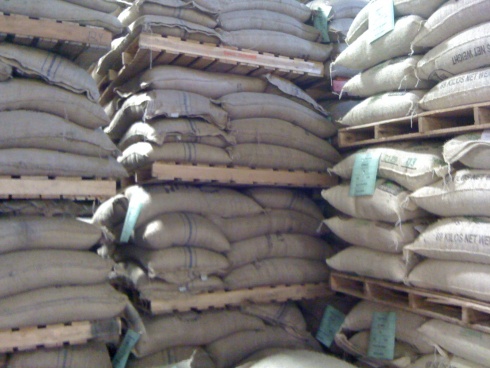Coffee farmers in Uganda are fetching between 70 and 75 per cent on the international market price occasioned by malpractices in the sector, the agriculture minister Vincent Ssempijja has said. According to the minister, the coffee sector in Uganda faces problems of quality deterioration, poor marketing, a challenging regulatory framework and poor infrastructure mainly in the rural areas.
“Due to unscrupulous elements operating at various levels of the coffee value chain, coffee quality malpractices have also increased. This is a danger to our coffee industry both internally and at international level,” Minister Ssempijja says.
The minister fears that the international market could reject Uganda’s coffee if the malpractices are not addressed.” We do not want to face the danger of the international community rejecting Uganda coffee as it did to fish a few years ago,” he said.
The Minister said his ministry will work to improve post-harvest practices including hygiene and sanitary conditions to have Uganda coffee regain its premium quality. Further, the minister says Uganda needs to export high grade premium coffee as well as entering specialty markets by adding value.
“We will continue to sensitize the stakeholders especially the farmers, traders and coffee factory processors to appreciate the benefits of good post-harvest handling, good quality coffee. We will only close the factories, when all other avenues have been exhausted,” he says
The minister said the Uganda Coffee Development Authority (UCDA) recently closed coffee factories in Masaka sub region due to deteriorating standards in handling .
“From Masaka, the exercise will continue to Busoga, Luwero, Mubende as the harvest season proceeds in these sub regions,” he added.
According to UCDA Executive Director, Dr Emmanuel Lyamulemye, the coffee quality has improved as a result of factory closures in Masaka sub region, with farmers now getting better prices for dried coffee rather than the wet coffee which fetches lower prices.
Minister Ssempijja says farmers and traders in districts of Bushenyi, Sheema, Ibanda and Mount Egon districts of Mbale, Bulambuli and Sironko, have employed good harvesting and drying practices. “Most of the coffee cherry is harvested when red ripe and dried on tarpaulins and clean local mats,” Minister Ssempijja notes, calling upon the farmers in those districts to maintain high quality standards.
The minister encourages farmers to employ good husbandry practices in the coffee gardens , by weeding, pruning, mulching and uprooting and burning on spot trees affected by the coffee wilt.
As one of the measure to boost coffee quality farmers must harvest only the red ripe cherry, unripe cherry spoils quality. “It is the farmer’s responsibility to dry the coffee up to the required Moisture Content level before selling,” he says.
Further coffee regulations do not allow trade in coffee that is not yet well dried as it affects quality.
Since 2014, Government has intensified campaigns to give coffee seedlings to farmers increasing from 20 million to the current 200 million seedlings per annum. The minister says government targets to have 300 million seedlings planted per year up to 2018/19 coffee year.
Uganda grows both Arabica and Robusta coffee, mainly through smallholder farmers.
Uganda follows Ethiopia as Africa’s top coffee producers. But Ethiopia consumes most of her coffee domestically, making Uganda Africa’s number one coffee exporter.








